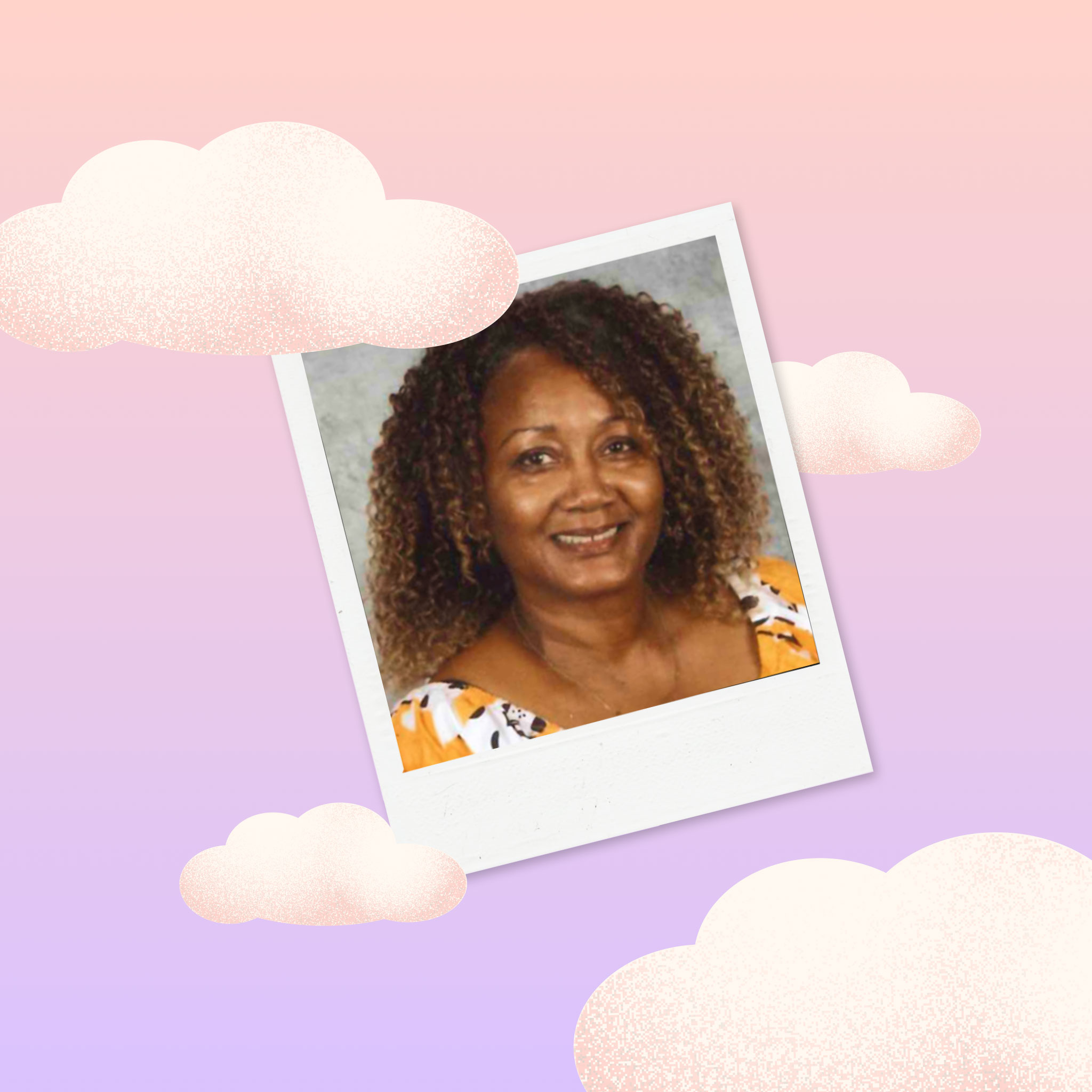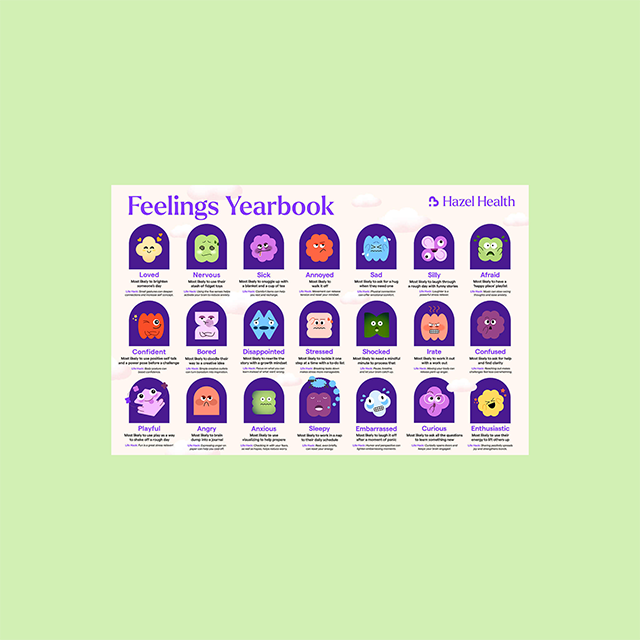Schools play an essential role in addressing and supporting student mental health needs. At Hazel, School Counselors are the backbone of our work in supporting student well-being–they identify students needing additional support, advocate for the program, and connect students to their in-school teletherapy appointments.
In this interview, Junette, a Middle School Counselor in Hillsborough Public Schools, shares her experience with Hazel Health. During our conversation, Junette discussed her transition from teaching math to school counseling, how and when she decides to refer a student to the Hazel program, the importance of involving families, memorable moments with Hazel, and more.
What is your background? Walk me through your journey to becoming a School Counselor in HCPS.
It’s been a very long journey. This is my third career. I have two sons and stayed home for about five years after my second was born. And then, I was ready to return to work, and I got two jobs in one day! I got a job as a teacher and a job as a financial analyst. I chose to teach. I have a background in mathematics, so became a 6th through 12th grade math teacher. I taught for about eight years. I started to see that for a lot of kids, it's not that they're not capable of passing, it's all to do with how they think about themselves. So I looked into becoming a counselor and I've been doing that since about 2007 in this district, and it's been great.
What is your day-to-day like as a School Counselor?
There is no typical day. First and foremost, we deal with student issues. This could be anything from mental health crises and friendship issues to schedule changes. Then there are parent meetings, and we have team meetings, but anything could come up because we're dealing with kids. And sometimes you have to drop everything. There are not really typical days, but we do have duties; we go out and supervise during passing times. I supervise the lunch duty. Sometimes, when teachers are out, and we're short of substitutes, I substitute for a class. And then, at the beginning of the year and during testing times, we supervise that. It could be anything, and I do try to have a plan, but you just never know. And that's okay.
How did you feel when Hazel Health first launched at your school?
I was really happy because in my elementary experience we had outside agencies who came to the school to help us do the counseling, so I was used to that. When I got here, there wasn't that, and we were trying to see how we were going to divide up the Individualized Education Program (IEP) counseling cases. There's myself, another School cCounselor, a School Social Worker, and a School Psychologist, who both come two days a week. We have to as a team divide it up. So I was just like, “oh, this is good,” when I heard about Hazel Health. They introduced it this summer, and I was like, okay, that's gonna be a good thing.
How did you feel when you learned Hazel Health is a virtual service?
I didn't think it was going to be a hindrance because the kids could be at school, and I know kids don't mind being on a laptop. So that's their thing. I didn't think it would be a bad thing.
Can you talk a little bit about the referral process? How do you decide which students to refer to Hazel?
The referral process is so simple. I love it. Because of my elementary background, there are rare occasions that I'm going to talk to a child about something important and not contact the parent. That's just my go-to… I must let the parent know the student spoke with me and what the issue was. This is their baby. If I talk to a student about an issue, and I can tell that they’re going to need more than one counseling session, more than just to check in, then I tell them about Hazel. And I say, “Do you think that's something you'd be interested in?” And more than likely, they’ll say, “Yeah, I'll try it.” Then, I connect with their parents. It's really easy. It's a really easy process. I have all the student's information online right in front of me. I call the parents, and I them about it. They often have questions like “what is this?” But once I say that it's in school and that it doesn't cost them, then they're like, “Okay, yeah, we’ll try that.” And I tell them what to expect.
Are there any trends you're seeing in terms of what the students are dealing with who you are referring to Hazel?
One key theme is self-esteem. And I hate to say this, but a key theme is they want to give up on themselves and just say, “Forget this.” So, unfortunately, that has been a theme. And they care so much what their peers think about them. If they think that they're not liked or they're not going to fit in, then a lot of times, it's like the world is over.
Once they start the program, they've all done well, and I check in with them. I ask, “How's it going?” And they're like, “it’s going good.” And they look forward to it too. When I see a Hazel appointment, I make a little pass in homeroom. And I give it to the student, and just remind them, okay, you know, you have a 9:30 appointment, and they’re like, “Yeah, okay, good.” They're looking forward to it, because it's a dedicated time for them. In the past, with my elementary students, we did groups and some individual counseling, and we had certain things set up. But there were always kids that I knew I wasn't connecting with. This way, they know that they are going to get dedicated time, and it doesn't just depend on me and my scheduling. With Hazel, they know there's going to be another time; they're going to get to sit with the therapist and get that one-on-one therapy that they really need. So it's been really good that way.
On how students feel about Hazel
With Hazel, they know there's going to be another time; they're going to get to sit with the therapist and get that one-on-one therapy that they really need. So it's been really good that way.
Are there any specific moments with the Hazel program that have stuck with you?
We have a young man, he's a sixth grader. He came in with some issues and challenges in getting along with his classmates…he said some things, and he did not retract any of it. Now he just lights up when I bring him his little pass for his Hazel appointment, and he's been getting along with his friends. Even before he had that incident in school, his mom had heard about Hazel, and she was wondering when we were going to start. She was on board before we even contacted her. Once he started with Hazel, he's just been different. We have not had one incident with him. And he has made friends. He is just flourishing.
I can think of all my kids, they so look forward to it. Sometimes, we have to use different places in the school for the Hazel appointments. And sometimes, they have to use my office, and the Hazel therapist will start talking to them. And the student will be waiting for me to leave. And I'll say, “They're just waiting for me to get out of here so they can get started” because they know it’s their private time. They know I'm a counselor, but it's like, when she leaves, I'll start talking to you. That's really good. And I think because the Hazel therapist is not on campus, and the students don't see them every day and see them around, they feel more open to sharing. They know it's an adult who's helping them. So I think that's a good thing.
—
We are so grateful to Junette for taking the time to chat with us about her journey and experience with the Hazel program! Because of dedicated, empathetic School Counselors like Junette, young people are getting the support they need to thrive in and out of the classroom.





